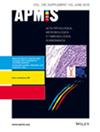Detection of Anti-CMV TCR CDR3s via Blood and Tumor Exome Files Correlates With Increased Survival for Stomach Adenocarcinoma and Soft Tissue Sarcoma
Abstract
While the role of anti-cytomegalovirus (CMV) T-cell responses in the cancer setting is becoming increasingly recognized, the association between CMV and survival outcomes has not been subject to study through more recent immunogenomic approaches. Thus for this study, we extracted T-cell receptor (TCR) recombination reads from whole exome sequencing (WXS) and RNA sequencing (RNAseq) files of stomach adenocarcinoma (STAD) and soft tissue sarcoma (SARC) samples from the Cancer Genome Atlas (TCGA) and matched the corresponding TCR complementarity determining region-3 (CDR3) amino acid (AA) sequences represented by these reads to known anti-CMV CDR3 sequences. Results indicated that the recovery of both TRA and TRB recombination reads from WXS files, from either blood or tumor samples, which corresponded to AA sequences matching anti-CMV CDR3s, correlated with better survival probabilities for both STAD and SARC. However, TCR CDR3s represented by recombination reads recovered from RNAseq files and matching anti-CMV TCR CDR3 AA sequences correlated with lower survival probabilities. These results raise the question of whether exposure to CMV prior to onset or progression of cancer may lead to better survival probability whereas a potentially active T-cell response to CMV during cancer onset or progression could represent an ongoing comorbidity? In conclusion, TCR CDR3s may be an important indicator of prognosis for stomach cancer and soft tissue sarcoma and may support further research into anti-CMV CDR3s as a tool for development of immunotherapy for these cancers.

 求助内容:
求助内容: 应助结果提醒方式:
应助结果提醒方式:


